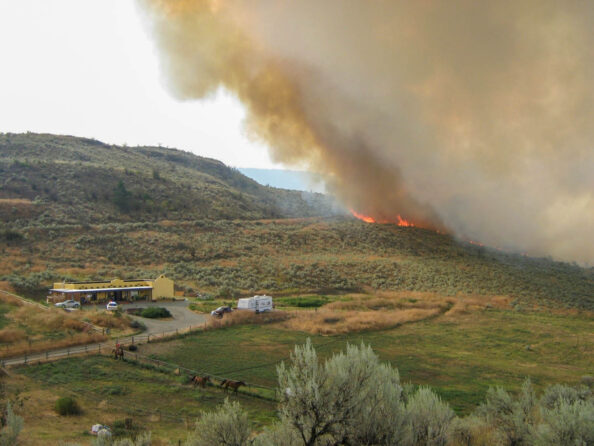
Last year’s wildfire season in BC was the most destructive on record, with 2.8 million hectares burned—more than double any previous year. The fires caused significant disruption to the work and lives of many people in BC, and the impact was felt strongly by those in the forest industry. Evacuations and alerts, oppressive smoke, high heat, area closures, and lack of access to industry critical resources, including helicopters, were among the many challenges faced by the industry.
The influence of El Niño contributed to the warm and dry climate throughout 2023, and this pattern has continued into the spring of 2024. Coupled with below-average precipitation and above-average temperatures expected over the coming months, the prolonged drought conditions are once again setting the stage for a challenging 2024 fire season across the province.
 Climate change and disruptive weather patterns like El Niño continue to complicate the situation in the forest industry. Many forestry companies are challenged in the work that they do as fire seasons begin earlier and become more intense. The forestry industry is forced to adjust its operations, prioritizing fire readiness and resilience. Additionally, workers are regularly confronted with unique and sometimes rapidly changing hazards.
Climate change and disruptive weather patterns like El Niño continue to complicate the situation in the forest industry. Many forestry companies are challenged in the work that they do as fire seasons begin earlier and become more intense. The forestry industry is forced to adjust its operations, prioritizing fire readiness and resilience. Additionally, workers are regularly confronted with unique and sometimes rapidly changing hazards.
The forestry sector is vital to BC’s economy, and its workforce is the backbone of the industry. It’s crucial for forestry workers to understand wildfire risks and management to ensure their safety and the safety of forestry operations. Equipping forestry workers with the necessary skills they need to prepare themselves for the prevention, and/or mitigation wildfires is essential. Being trained to understand risks and mitigation strategies will help contribute to the growth and diversification of the forest industry workforce but will also help with restoring our forests and mitigate climate change impacts.
To help forestry workers recognize and wildfire risks, and reduce the risk of health hazards, BCFSC suggests the following resources and training opportunities:
Resources:
- Wildfire Preparedness Guide (PreparedBC)
- Dangerous Tree Resources
Free Training:
- Introduction to Dangerous Trees
- Forest Supervisor Training
- Serious Incident and Fatality Investigation
Webinar Recordings:
- Mitigation Strategies for Wildfire Smoke and Other Respiratory Hazards in Wildland Firefighting (May 1, 2024)
- Tips to Successfully Transition into Supervision (November 30, 2022)
Crew Talks: